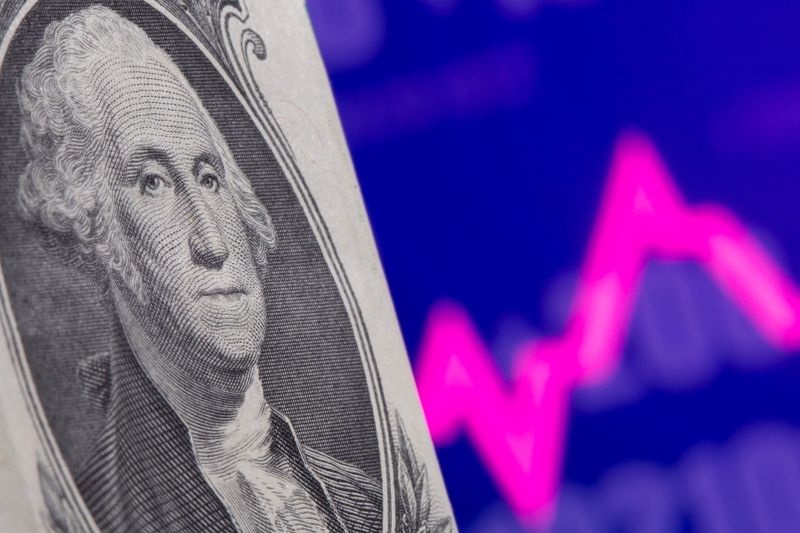 © Reuters
© Reuters
Investing.com-- Most Asian currencies retreated on Monday, while the dollar traded near two-month highs amid uncertainty over whether the Federal Reserve would hike interest rates in June, with focus now turning to central bank meetings in India and Australia this week.
The dollar advanced in Asian trade, with the dollar index and dollar index futures adding about 0.1% each. Both instruments were also close to two-month highs as data on Friday showed nonfarm payrolls jumped far more than expected in May, pointing to a robust U.S. labor market.
The reading, coupled with stronger-than-expected print on the Fed’s preferred inflation index earlier in May, presented a hawkish outlook for the central bank in June.
But a slew of Fed officials touted the possibility of a pause in rate hikes this month, calling on the Fed to take stock of its year-long rate hike crusade against inflation. This brewed some uncertainty over how the central bank may act next week, especially given that other facets of the U.S. economy appear to be slowing.
Still, the central bank is widely expected to keep rates higher for longer, which presents more headwinds to risk-heavy Asian markets.
China’s yuan fell 0.2%, moving back towards a six-month low following a weak daily midpoint fix from the People’s Bank. The currency took little support from a private survey showing stronger-than-expected growth in China’s services sector, given that overall economic activity still remained under pressure.
Focus this week is on Chinese trade and inflation data for more cues on Asia’s largest economy, as it struggles to recover from three years of COVID disruptions. A swathe of mixed economic readings for May pointed to slowing momentum in the economy after a strong start to the year.
Markets are also awaiting central bank meetings in Australia and India this week, although both banks are expected to keep rates steady after sharp hikes over the past year. But there also exists a slim chance of a rate hike from the Reserve Bank of Australia, given that inflation unexpectedly rose in April.
The Indian rupee was flat, while the Australian dollar fell 0.3%.
Waning safe haven demand, after the passing of a bill to raise the U.S. debt ceiling, pushed the Japanese yen back to the 140 level to the dollar, while disappointing service sector activity data for May also weighed.
The Thai baht was the worst performer in Asia, down 0.7% amid continued uncertainty over the formation of a new government in the country.

